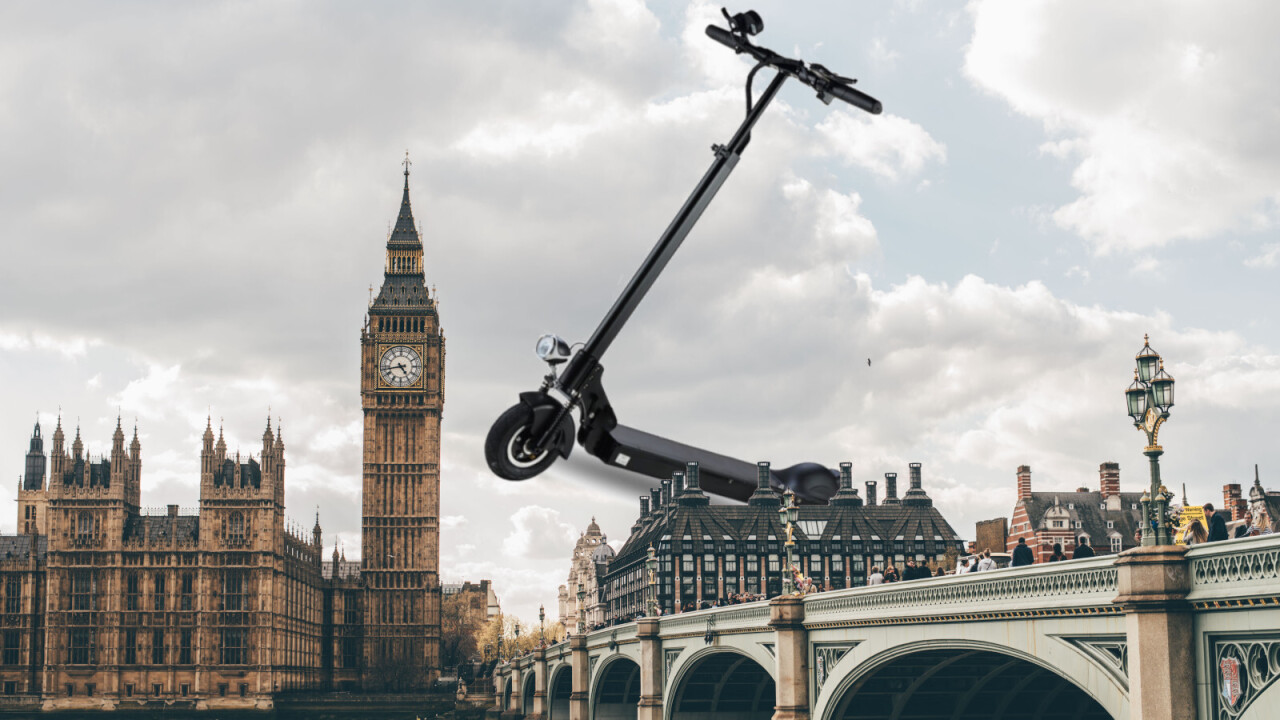
Roads in the United Kingdom are set to see a host of new transport technology in the near future as the nation’s government greenlights a series of real-world tests. The blueprint it creates could set precedent for other countries that want to implement new mobility tech.
Earlier this week, the UK government announced that it will be launching a consultation period in four specific zones, where e-scooters and self-driving vehicles will be trialed.
[Read: Ugh, the UK cuts electric vehicle grant for the third time in 10 years]
The zones, more formally called “Future Transport Zones,” will each receive a cut of £90 million ($109 million) in funding to help support the trials of the new tech.
It should be noted that we’re still probably many months away from seeing the mobility tech on streets nationwide. You’ll only spot e-scooters and self-driving vehicles in these zones, for now.
The four zones are: Portsmouth and Southampton, the West of England Combined Authority (WECA), — which covers Bristol and Bath — Derby and Nottingham, and the already operational West Midlands Future of Transport Zone.
At the moment, full details are scarce. However, the government has highlighted a few key areas of focus.
Self-driving cars
The WECA zone will trial self-driving cars that transport locals between Bristol airport and the surrounding region. This is literally all the government has said on that specific project; to say anything now would be speculation. However, speaking more generally, the government did say that it wants to improve how journeys are planned, and paid for.

It’s possible that self-driving airport taxis would ferry passengers along very specific, and well-known routes. In other words, they would operate in a somewhat controlled and geo-fenced area, much like Google’s Waymo trials in the US.
Drone deliveries
The government also wants to experiment with delivering medical supplies to and from the Isle of Wight using drones. This will help speed up diagnoses by cutting out time spent journeying on ferries and roads, the government says. On successful completion of the trials, the drones could eventually transport chemotherapy kits faster than conventional methods.

E-scooters and regulation
Perhaps the most anticipated and realistic trials are that of stand-on electric scooters.
The government says this trial will explore how e-scooters can be legalized and made safe for use on roads. This will include setting minimum requirements for vehicle standards, insurance, and user age. It will also explore whether local authorities should be granted specific powers to manage the local impacts of e-scooters, and manage how they are parked in public spaces.
However, there is one last hurdle to overcome: Interim legislation.

At present, it’s illegal in the UK to use e-scooters on public roads and pavements, so the government will need to amend current legislation to allow for their use in trials.
Local authorities in each test zone are expected to then contact one or more e-scooter service provider to supply the necessary hardware to be available for hire on the streets.
The UK is certainly taking its time and has the opportunity to learn from challenges other cities have come up against when offering these kinds of services. The UK’s approach could lay the groundwork for other cities around the world to follow.
Back in January, the UK government announced that it would discuss legalizing e-scooters, with these trials being the first positive step toward that.
Don’t expect to see the trial hardware on the streets anytime soon. The government is yet to give a definitive timeline, but a conservative estimate would expect to see trials begin before the end of summer, hopefully.
Get the TNW newsletter
Get the most important tech news in your inbox each week.




